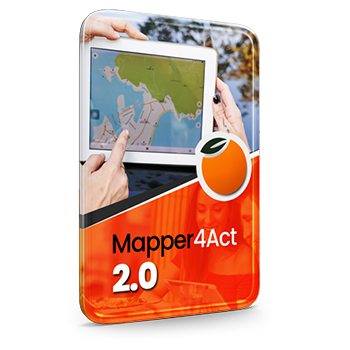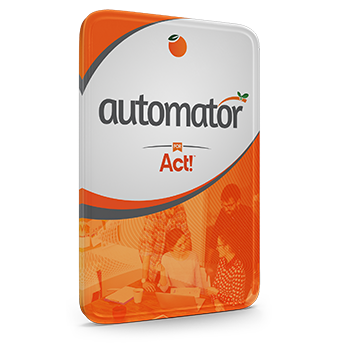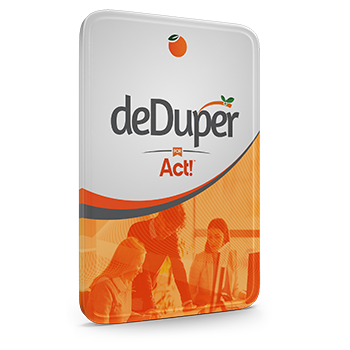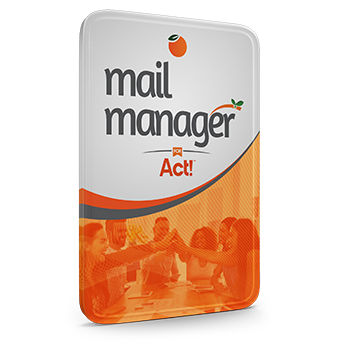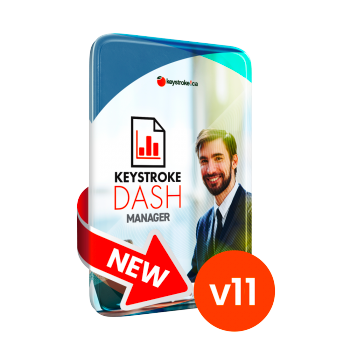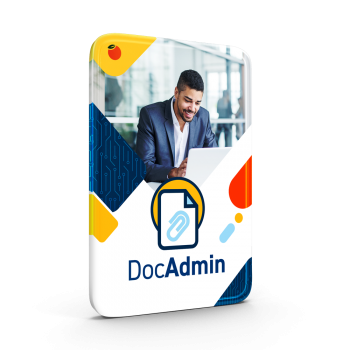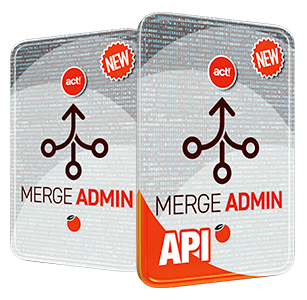Over the years, many QuickBooks users have used their accounting program for quoting, and it's easy to understand why. The Estimate feature is built into the program, and accepted quotes can be converted to invoices with a single click. I know this because I used to use this feature once myself, and it seemed convenient at the time. The problem is this convenience comes at a high price, and most QuickBooks users don't know they're paying it until much later. To help the reader avoid the same costly learning curve, the following is a list of the four main reasons quoting with your accounting program can cost more time & money than it saves.
Littering of your QuickBooks data file
In the beginning, quoting with QuickBooks make sense because most of the people being quoted are likely existing customers, and the Estimate feature makes it quick and easy![]() . The problem starts when you get new "prospects", and you're forced to add them to QuickBooks as "customers" long before they actually become so - assuming they ever do.
. The problem starts when you get new "prospects", and you're forced to add them to QuickBooks as "customers" long before they actually become so - assuming they ever do.
And even if this problem seems small at first, over time your prospects will inevitably come to outnumber your real customers, and then you've got a big mess on your hands. QuickBooks has only rudimentary search tools, so real customers become harder to find in the growing morass of non-customers each day. You can try to hide them from view by making each of these prospects "inactive", or just delete them outright, but each of these measures has different pitfalls like needless duplicates, lost data, and the purging of sales histories, just to name a few.
Whether you choose to live with the mess or waste time each day on list hygiene, the inefficiencies of working with a polluted accounting file will cost you more time than you saved quoting with QuickBooks in the first place.
No Pipeline Data
QuickBooks is not a CRM. Creating an Estimate without a corresponding sales pipeline might seem harmless at first, but it makes it very difficult for sales managers or business owners to project income, and for salespeople to schedule follow-ups on quotes. Accounting programs are designed to track real income, not projected or potential ![]() income, so you're making this process much tougher than it needs to be. Without a proper sales pipeline, you can't organize your opportunities, rank them by probability, sales cycle, stage, or anything. And if this sounds like fancy sales metrics you wouldn't have used anyway, remember that QuickBooks also has no calendar, so your salespeople won't be able to schedule or plan for follow-ups to close those deals.
income, so you're making this process much tougher than it needs to be. Without a proper sales pipeline, you can't organize your opportunities, rank them by probability, sales cycle, stage, or anything. And if this sounds like fancy sales metrics you wouldn't have used anyway, remember that QuickBooks also has no calendar, so your salespeople won't be able to schedule or plan for follow-ups to close those deals.
Advanced quoting systems like Link2quotes give you click-through feedback on when prospects view quotes, so you get real intel with which to plan your sales follow-ups. With QuickBooks, you're not so much quoting, as distributing price sheets. This might work if you're selling Fuller brushes door-to-door, but for the rest of us who have longer, multi-step sales cycles, with lots of prospects and competition, this is a prayer, not a plan.
And in the absence of a plan, spray-and-pray sales practices rely on either desperate customers or lazy competition to succeed, and both are in shrinking supply.
Frictionless acceptance process
Even at its best, the QuickBooks Estimate feature only renders and emails a PDF quote, nothing else. For the recipient to accept such a quote, they have to open and print the PDF, sign it, scan it ![]() again, and then send that scanned copy back by email. If that doesn't seem cumbersome enough, that same customer then has to wait for the vendor to send them the invoice to pay. That's a lot of potential failure points in the acceptance & payment process, especially when you remember how many people work from home these days.
again, and then send that scanned copy back by email. If that doesn't seem cumbersome enough, that same customer then has to wait for the vendor to send them the invoice to pay. That's a lot of potential failure points in the acceptance & payment process, especially when you remember how many people work from home these days.
Compare that process to Link2quotes, which not only allows the customer to accept the quote online, but also facilitates immediate payment, as well. And the customer doesn't need a computer, scanner, or printer to do so, since they everything can be done from their phone, where ever they are.
Expense & Security![]() This last issue hits home for business owners once they hire their first salesperson. It's one thing for a business owner to use the QuickBooks Estimate feature, but it's another thing entirely when they're forced to give the same access to salespeople. Business owners are naturally reticent to share sensitive accounting information like the chart of accounts, bank balances, inventory, or product costing with salespeople just so they can generate a quote. As a business owner myself, I like to caution people "if you give a monkey a gun, don't complain about the mess".
This last issue hits home for business owners once they hire their first salesperson. It's one thing for a business owner to use the QuickBooks Estimate feature, but it's another thing entirely when they're forced to give the same access to salespeople. Business owners are naturally reticent to share sensitive accounting information like the chart of accounts, bank balances, inventory, or product costing with salespeople just so they can generate a quote. As a business owner myself, I like to caution people "if you give a monkey a gun, don't complain about the mess".
This isn't just about exposing sensitive data, though, salespeople don't need an accounting program to sell, they need a CRM. They need a CRM to add prospects, schedule follow-ups, analyze pipeline data, document customer engagement, and project income. And they certainly don't need an accounting program that gives them the power to delete posted transactions and muck up records of completed sales.
If you're still not convinced, I'd also remind you that QuickBooks costs more than most CRM products on the market, so you're actually paying more to sell less.
In summary, quoting with QuickBooks may seem easier at first, but it is both impractical and inefficient compared to using a CRM with a good quoting program. If you're using Act! already, consider deploying Link2quotes in your business. You'll sell more, spend less time & money, and do so without risking the health and hygiene of your accounting file.
Your bookkeeper and salespeople will thank you for it. Come to think of it, so will your banker.



